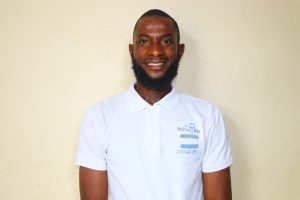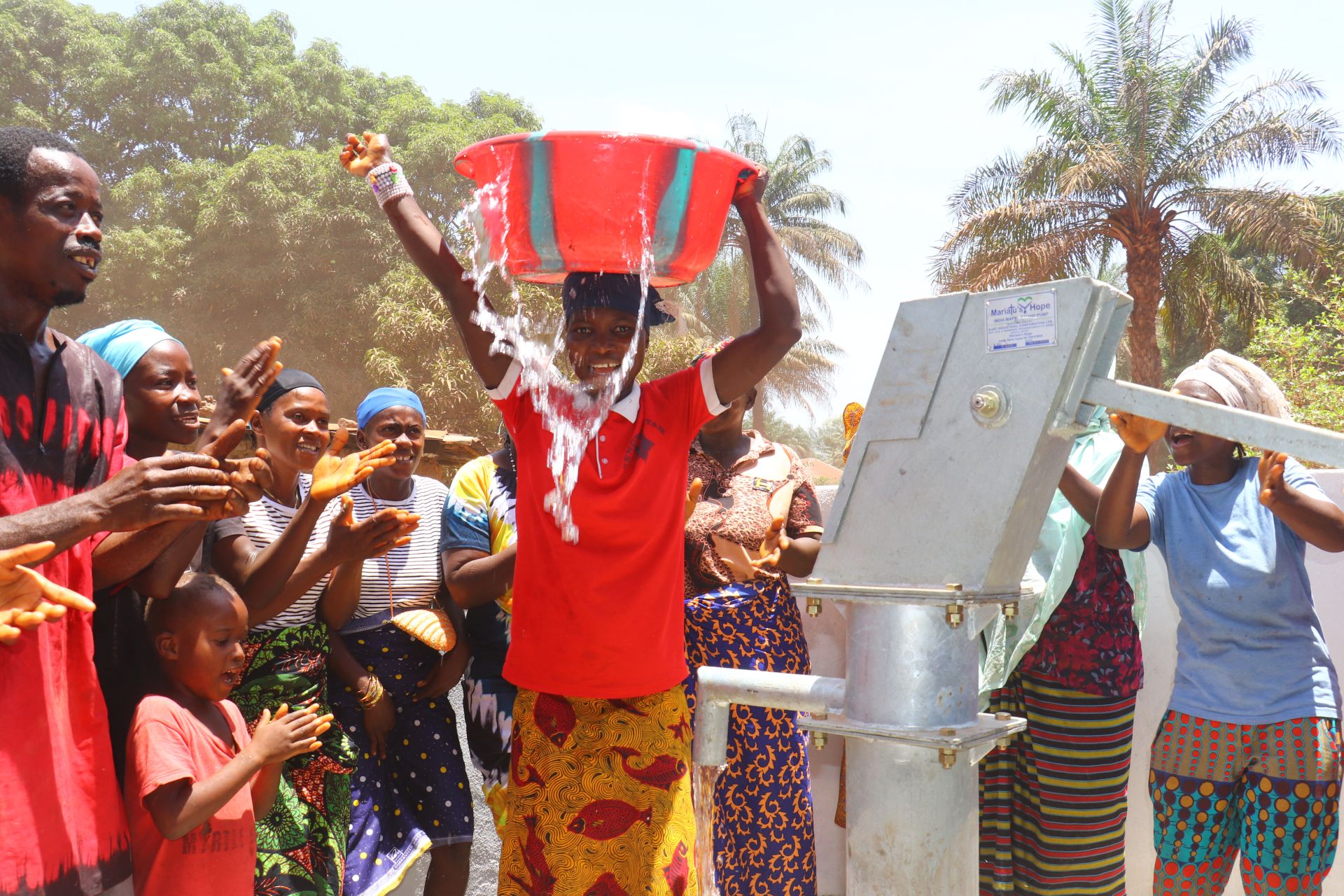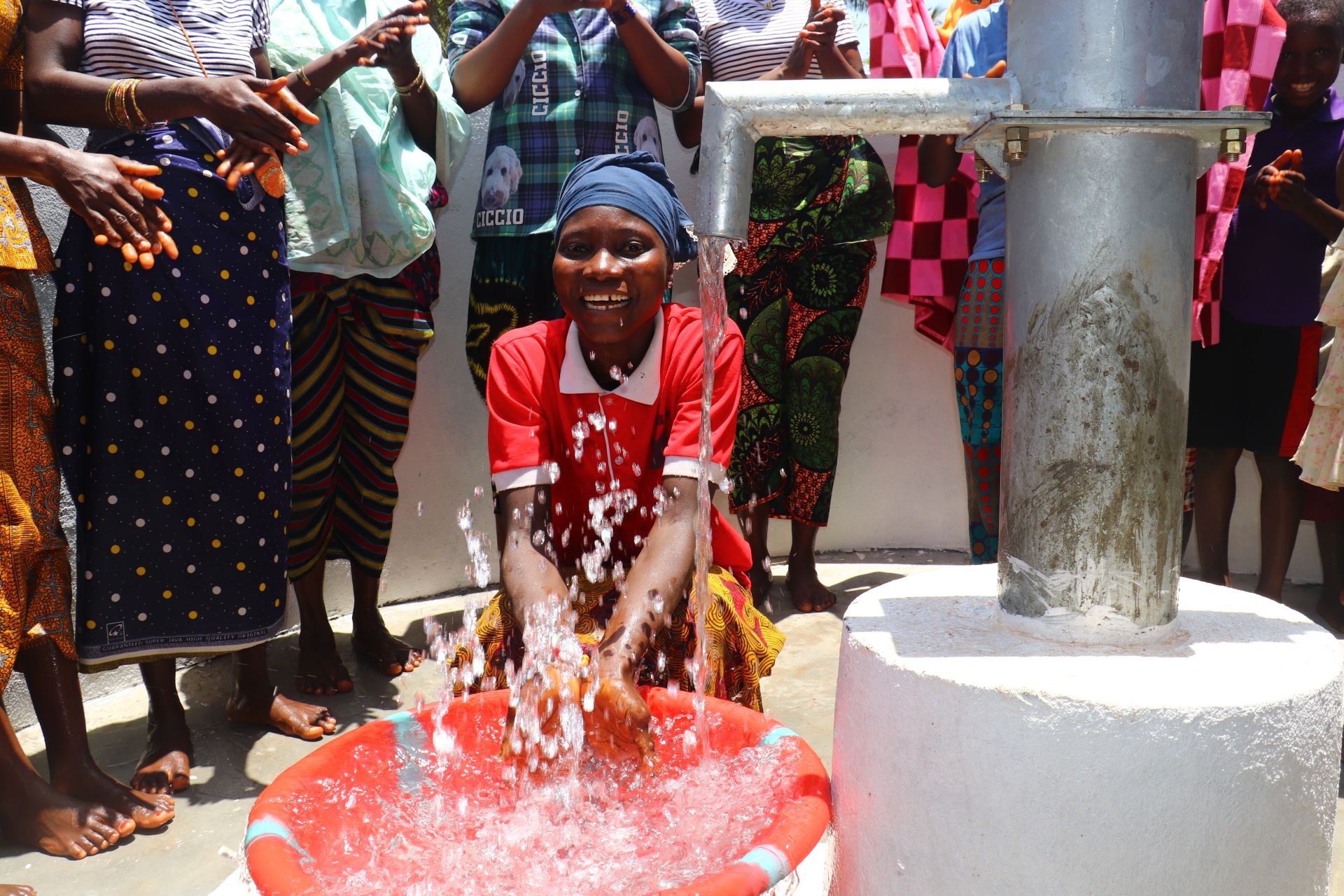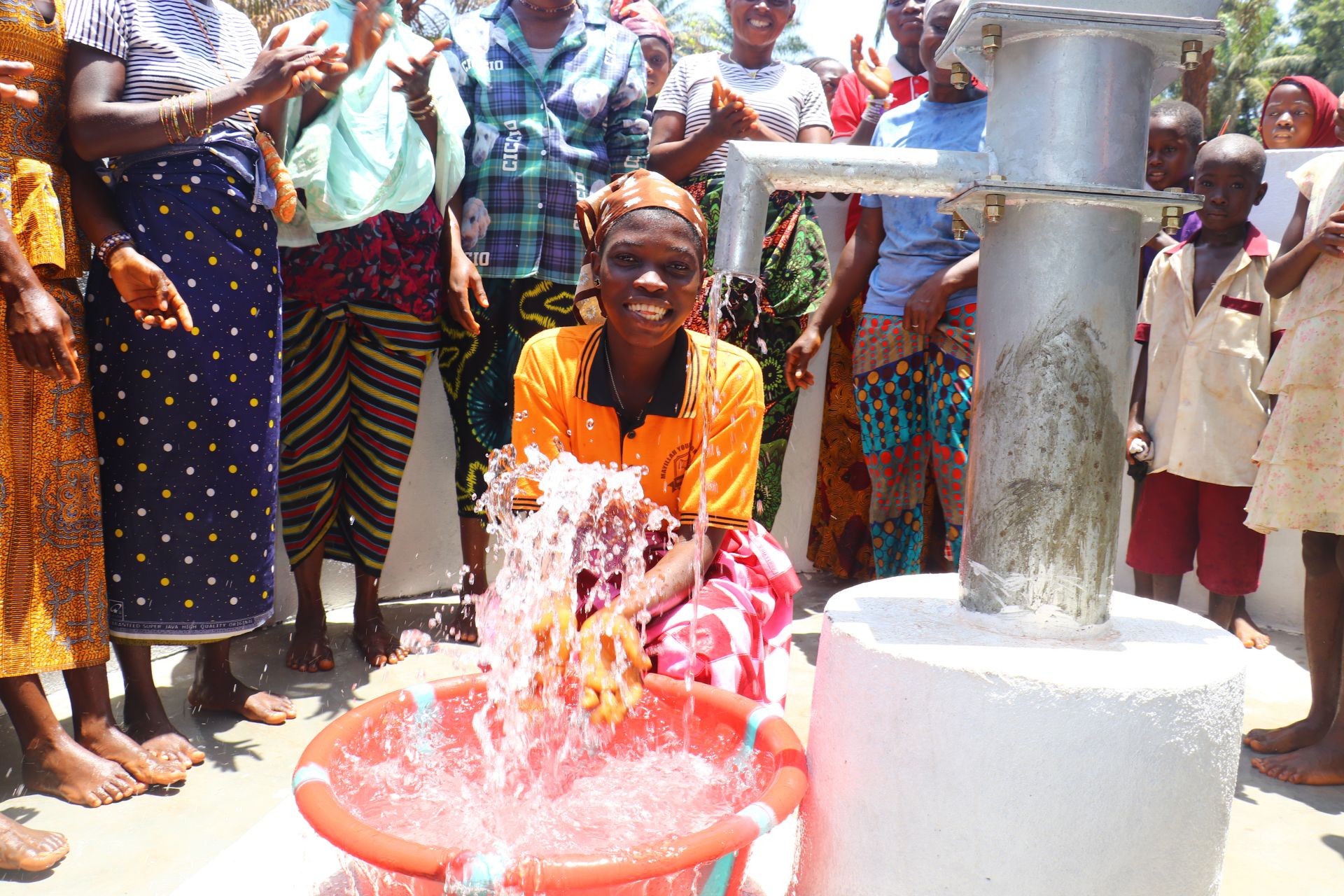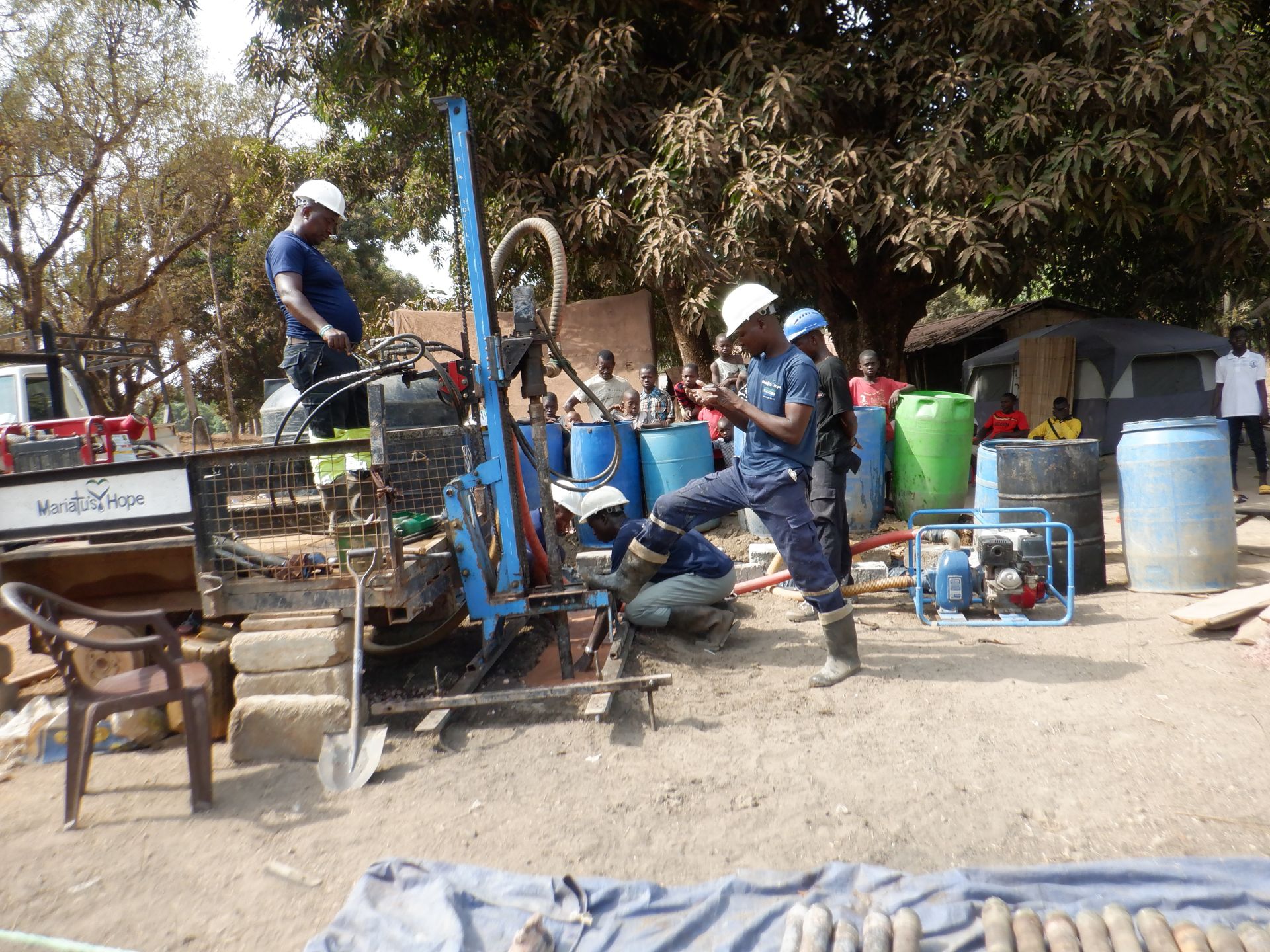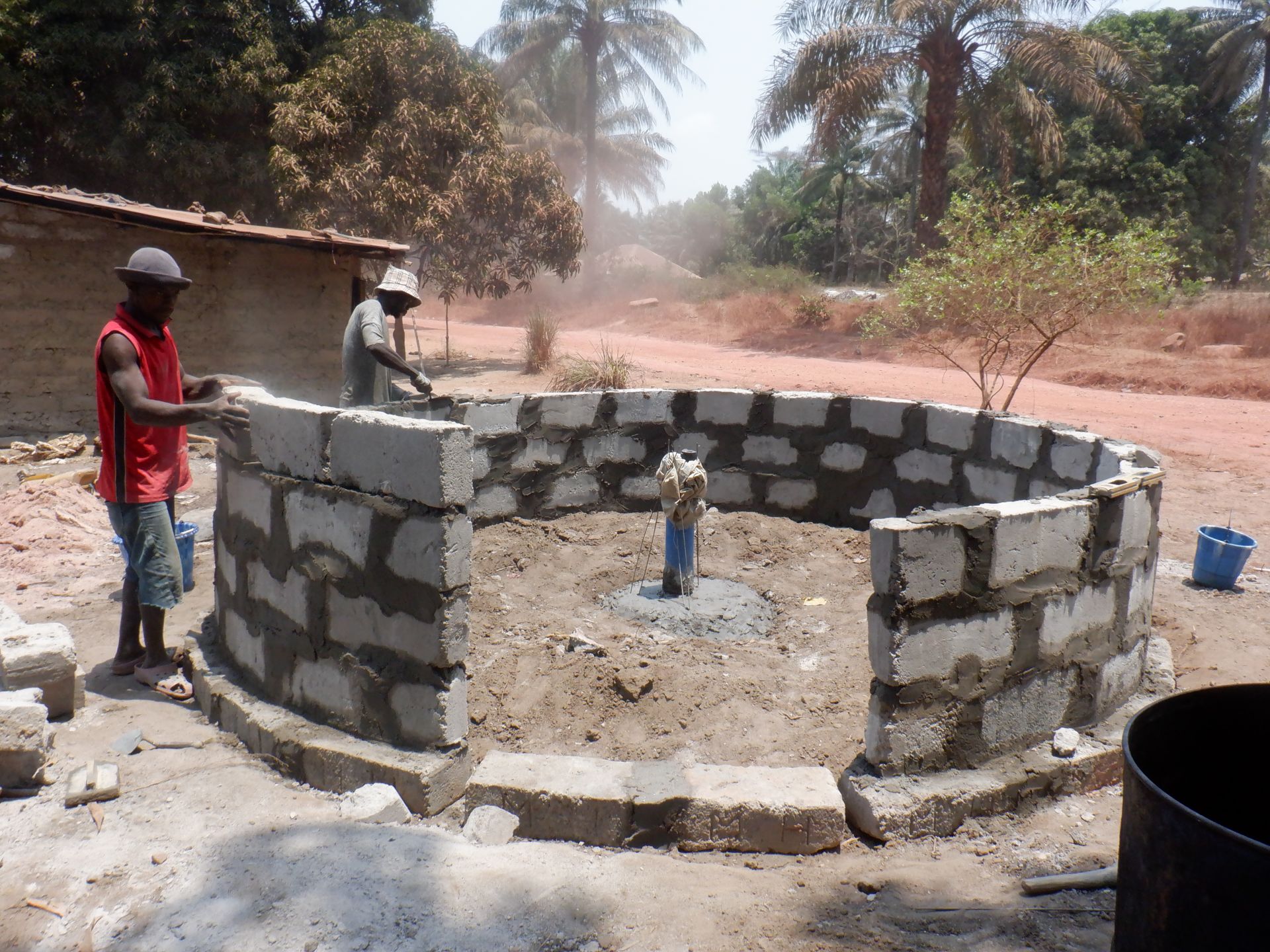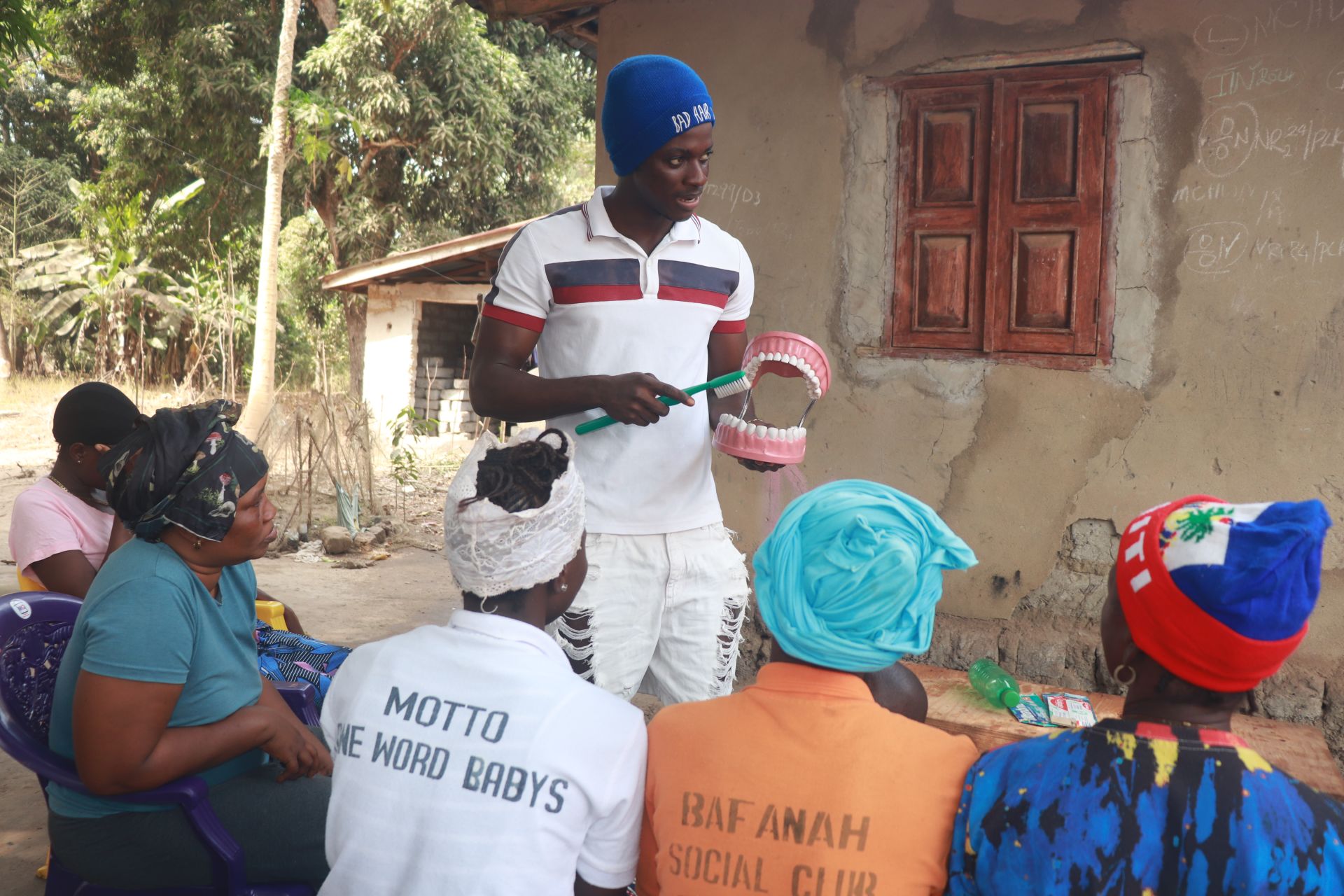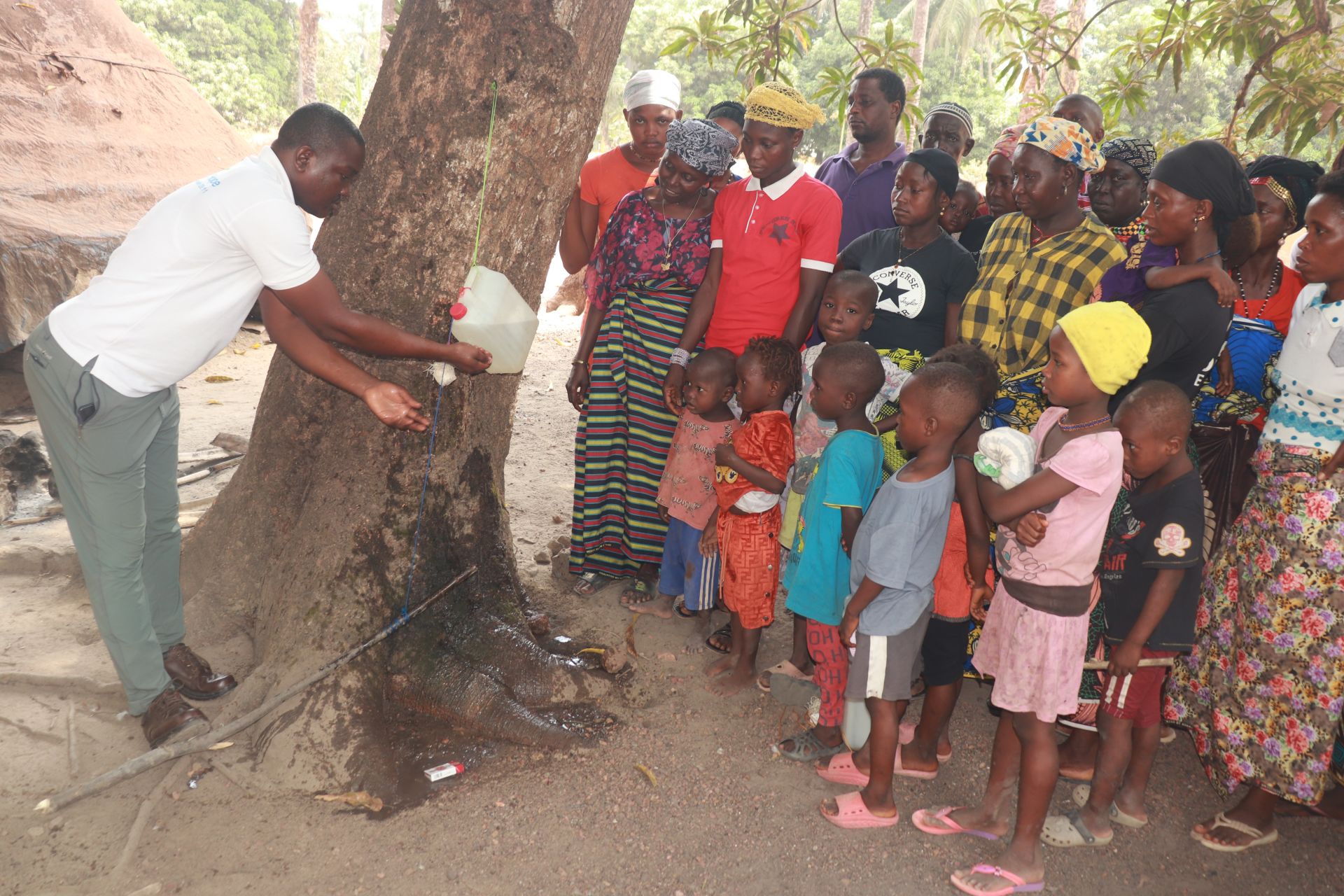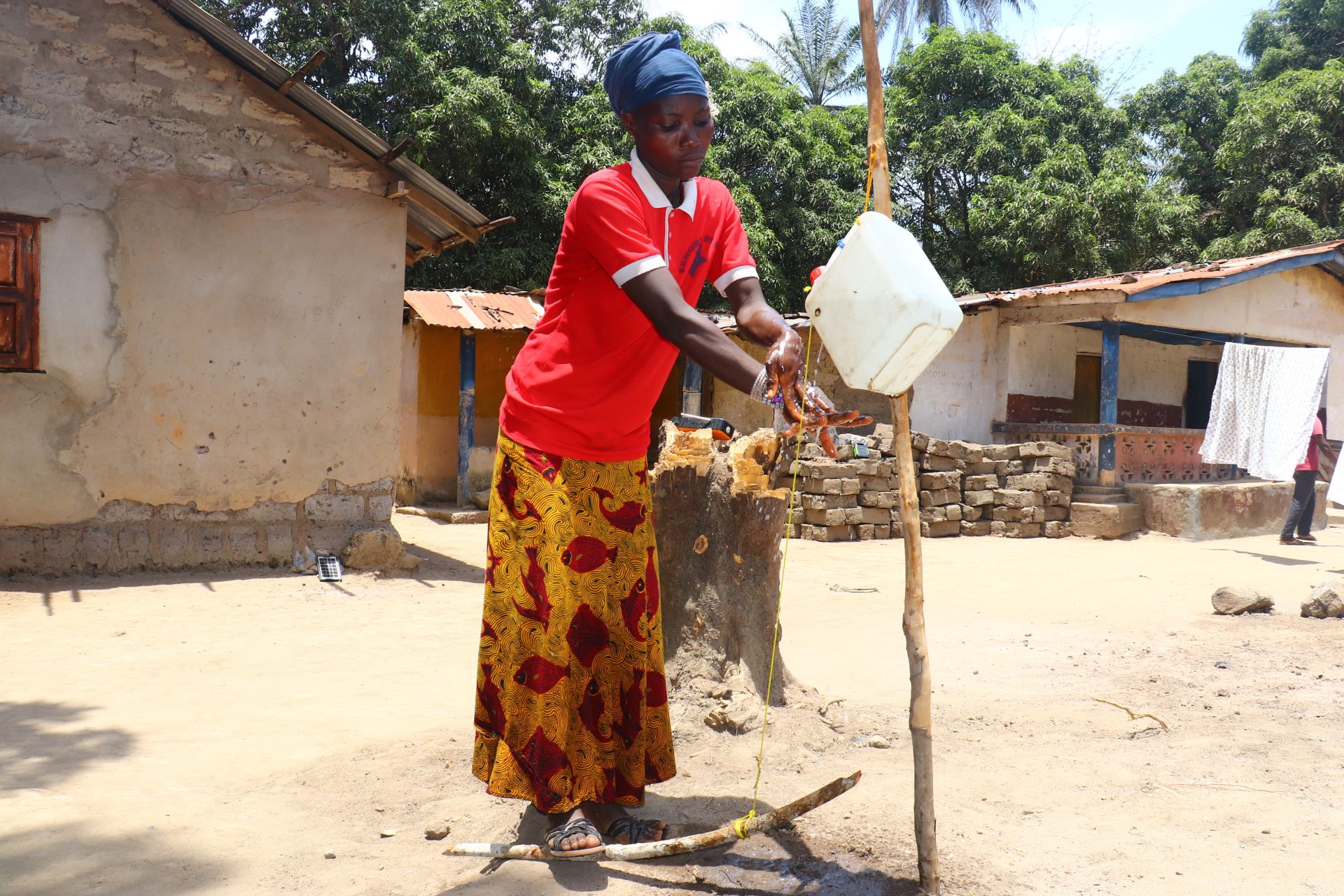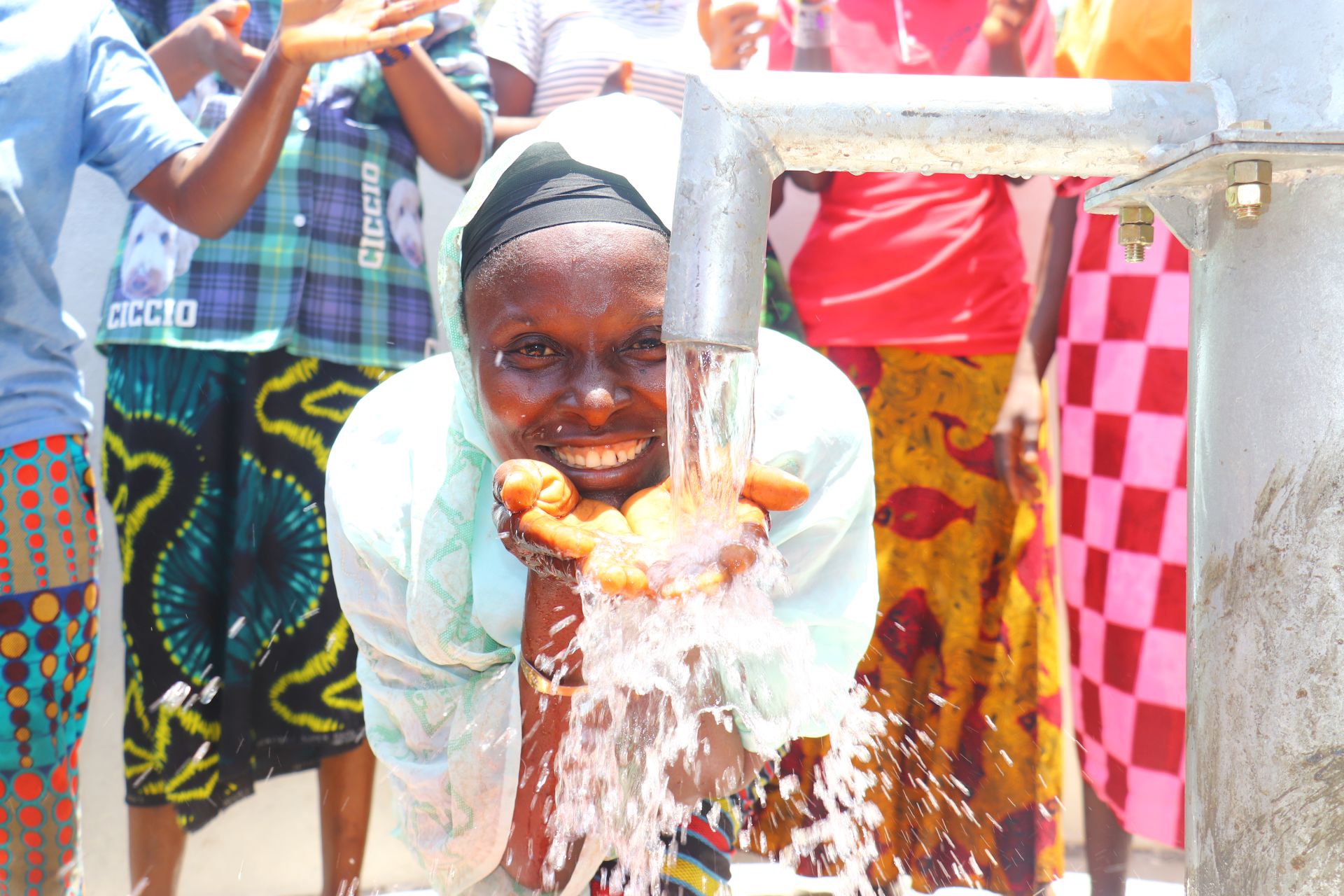The 177 people living in the Sengbe community rely on an unprotected well as their primary water source. The well is seasonal, meaning the water diminishes during the dry season. It's contaminated, risking people's health each time they consume it. Additionally, the well is located on private property, so people's access to the well is limited.

The unprotected dug well behind a community member's home.
"The unprotected dug well is located in the backyard of a house and it is on flat land. It is surrounded by houses, and the proximity to the latrine [is] very close. It has no fence or drainage channel. When rain comes, water settles and spills into the well," said Field Officer Alie Kamara.
Limited access and the need to use contaminated water are challenging enough, but the physical act of pulling water from the well is exhausting and time-consuming, especially for children.
"The primary source is an open well, and the community members use a rubber gallon [bucket] and a rope to fetch water. This well is a death trap for human beings, especially children. It was dug behind a house, and the well cover does not cover [it] well," he continued.

Gbassay collecting water.
16-year-old Gbassay is familiar with the hardship since she must collect water every day before she heads to school.
"It is difficult for me to access water in my village. The well gets low water, especially in the dry season from March to May. The pressure on the well causes the water to get low in the well," said Gbassay.
"Sometimes, I feel discouraged when I am sent to fetch water due to the way of fetching water from the well. I usually use a rubber gallon [bucket] and a rope to fetch water. This causes me to delay, and I will only fetch [the] water that I will use at home. I must go to school so that I will not miss lessons or teachings," she continued.

Gbassay carrying water.
Without access to sufficient water, Gbassay does her best to collect the water her family needs as quickly as possible. However, she inevitably misses essential school time, making it nearly impossible for her to keep up and make any academic progress.
"I do not go to school on time, and this leads me not to get complete notes. I was unable to study, and this led me to get poor grades," Gbassay concluded.
Gbassay and the other community members living in Sengbe need a safe and reliable water source. One that they can all access without limitations and having to expend so much physical energy and risking people's safety. With safe water at her finger tips, Gbassay can lay the foundation for a bright future.
Steps Toward a Solution
Our technical experts worked with the local community to identify the most effective solution to their water crisis. They decided to drill a borehole well, construct a platform for the well, and attach a hand pump.
Well
Abundant water often lies just beneath our feet. Aquifers—natural underground rivers—flow through layers of sediment and rock, offering a constant supply of safe water. A borehole well is drilled deep into the earth to access this naturally filtered and protected water. We penetrate meters, sometimes even hundreds of meters, of soil, silt, rock, and more to reach the water underground. Once found, we construct a platform for the well and attach a hand pump. The community gains a safe, enclosed water source capable of providing approximately five gallons of water per minute. Learn more here!
Community Education & Ownership
Hygiene and sanitation training are integral to our water projects. Training is tailored to each community's specific needs and includes key topics such as proper water handling, improved hygiene practices, disease transmission prevention, and care of the new water point. Safe water and improved hygiene habits foster a healthier future for everyone in the community. Encouraged and supported by the guidance of our team, a water user committee representative of the community's diverse members assumes responsibility for maintaining the water point, often gathering fees to ensure its upkeep.

 Borehole Well and Hand Pump
Borehole Well and Hand Pump
 Rehabilitation Project
Rehabilitation Project








